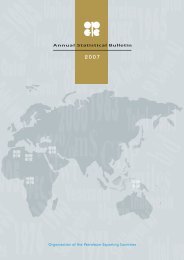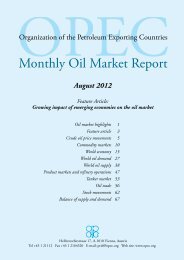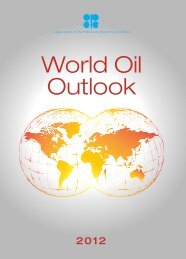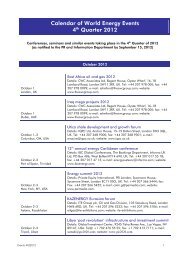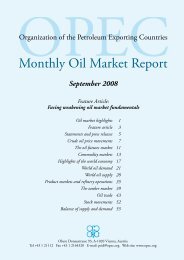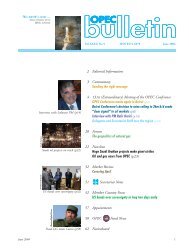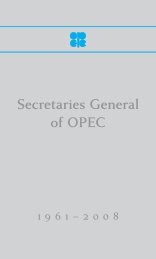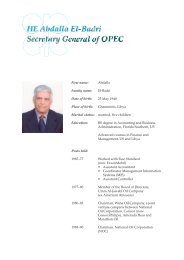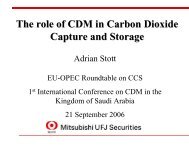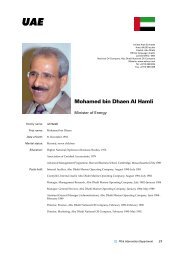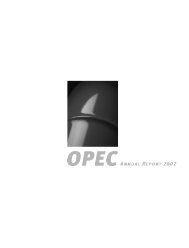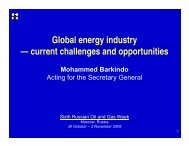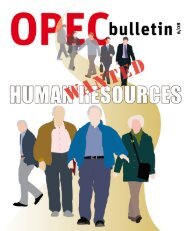2005 - OPEC
2005 - OPEC
2005 - OPEC
You also want an ePaper? Increase the reach of your titles
YUMPU automatically turns print PDFs into web optimized ePapers that Google loves.
called for, following the Gulf of Mexico hurricanes and the US supply disruption. The spare<br />
capacity was not required.<br />
<strong>OPEC</strong>’s actions, both in <strong>2005</strong> and in previous years, underlines its continued commitment to<br />
ensuring market stability at all times, with secure supply and reasonable prices that are equally<br />
rewarding to producers, investors and consumers, and consistent with robust economic growth,<br />
for both developing and developed economies. During <strong>2005</strong>, <strong>OPEC</strong> met on five occasions at<br />
Ministerial level, three of which were ‘extraordinary’ meetings called for by the Conference<br />
President in order to monitor and adapt to the current oil market situation. At these meetings<br />
it was agreed to increase production by a total of 1 mb/d to ensure adequate supplies of<br />
oil were available at all times. In fact, since 2002 <strong>OPEC</strong> production has increased by around<br />
4.5 mb/d in order to meet demand. However, <strong>OPEC</strong> was only able to achieve so much with<br />
its actions since factors over which the Organization had little or no influence were primar-<br />
ily responsible for the ‘extraordinary’, ‘complex’ and ‘unpredictable’ nature of the market in<br />
<strong>2005</strong>. This becomes acutely apparent when reviewing some of the factors driving the price<br />
increases.<br />
<strong>OPEC</strong> research indicates that since 2004 the traditional approach to assessing the tightness<br />
of the oil market, based on oil inventories as an explanation for oil price movements, has not<br />
been applicable. Research points to downstream tightness due to inadequate past investment<br />
and increasingly stringent product specifications – downstream investment is primarily the remit<br />
and responsibility of international oil companies and consuming countries – as well as the<br />
perception of upstream constraints. Alongside this was increased activity in the futures markets<br />
concerning possible disruptions, the vast majority of which never came to pass. Unforeseen<br />
natural disasters and geopolitical concerns obviously played a role too.<br />
What all this points to is the importance of shared responsibility within the global community<br />
and the importance of enhanced dialogue and cooperation. This is something that <strong>OPEC</strong><br />
placed great credence on in <strong>2005</strong>. Thus, last year should also be remembered for words such<br />
as: ‘dialogue’, ‘cooperation’ and ‘support’. This was particularly evident in the <strong>2005</strong> energy<br />
dialogues that widened and deepened discussions between <strong>OPEC</strong> and, respectively, the Euro-<br />
pean Union (EU), China and Russia.



